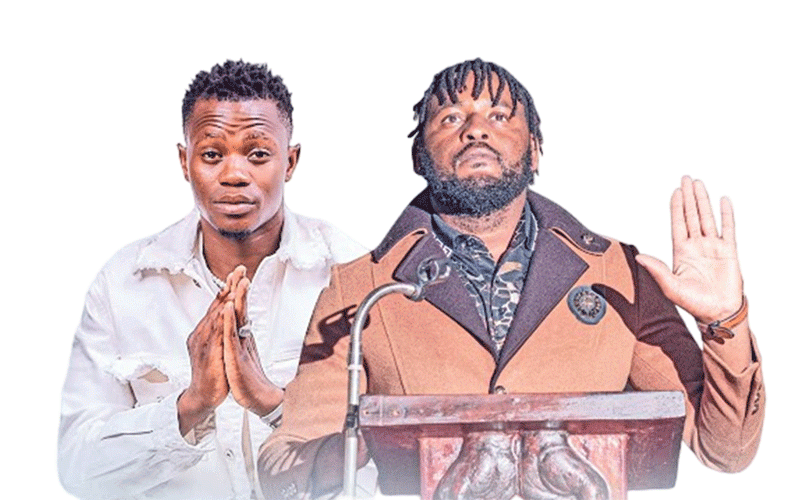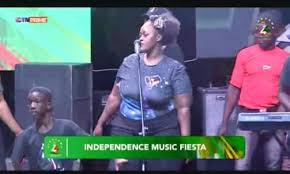
NEW author Dee Kuziwa has penned a dramatic fiction novel titled Links–a text that weaves a story of five family members entangled in family drama–and one which officially announces her debut entrance to the authorship and literary world.
Kuziwa is a business partner at a top local financial institution. She is the first born in a family of three and a budding writer of six other titles to Links which she has published online. A small-town girl, she developed the love for the written word at the early age of 14, and Links is one of her first officially published novels. She holds a post-graduate diploma in Organisational Psychology and lives in Harare with her family.
As I perused and salivated over her then manuscript with editorial lenses, I wondered why she had kept her manuscript(s) under the carpet over the years.
Set in the fictitious Katereni village, the storyline is told through Ida Silverstone and is centred on the Milalai family with Milalai being the male patriarch and son of the chief who ironically begs for a living so as to survive and sustain his family.`
He(Milalai) is portrayed by the author as the godfather of laziness–one who is even too lazy to yield from his own field,
“He despised the feel of the hoe in his hand, the act of bending over to till the land, and so failed to yield the pleasures of reaping one hundred-fold the sweat of honest hard work. He was bound in debt the first time he bought grain on credit from a man he called “friend”. He borrowed from a stranger to pay off the last account until he earned the scorn of all his neighbours” (pp,11)
His wife Merabo suffers the brunt of his unsatiable appetite to bear him many children whom he struggles to look after.
To show the extent of his uselessness or lack of responsibility thereof, he“sells or transacts” his own ten-year-old daughter for two bags of maize meal and one bag of wheat to a wealthy village man who is older than him after failing to settle the bill in monetary terms.
- Kuziwa unleashes hidden talent in debut fiction book
Keep Reading
“It will have to be my daughter then, he blurted and immediately hated himself for his foolish utterances…She is ten years old now but she will come of age, the forcefulness in Milalai’s voice proved quite admirable to Okouri”. (pp,22)
His wife Merabo objects to this until she eventually comes to terms with it.
How did her husband expect her to wait and watch while their daughter grew up oblivious to the price of her innocence the foolish bargain between her reckless and desperate father and a devious influential man” ?(pp.25)
Merabothus becomes the author’s representation of the stifled voices in the face of male dominance in a patriarchal society.
A drunkard and beggar for most of his life, Milalai is engulfed with guilt and shame after contractually selling his little daughter Keilah to the community’s richest and oldest man and polygamist once she turns 16.
It is out of this shame that he eventually commits suicide so as to escape from the troubles of his own making.
His son Ammariah is not apologetic about his father’s demise.
“Milalai does not deserve my forgiveness. What example does his dishonourable corpse leave to an aspiring young man? He did an evil selfish thing!”(pp.30).
Milalai’s death is the first incident in which Kuziwa assassinates a character and his imminent death had seemed to be the new breaking ground his family needed to make a break with the past and embark on a new trajectory of healing, closure, transformation, and emancipation.
But alas, Milalai’s death only makes things worse as the ghost of his misdeeds continues to haunt his family.
Shortly after Milalai’s death, his wife is denounced by her estranged in-laws who suspects or accuses her of having contributed to Milalai’s death.
To make matters worse she is stripped of most of the family’s property and possessions–chairs,tables and other household essentials.
“Mamerabo is devastated. Our once estranged relatives have now openly denounced her and their association with our family.They came today to scrape away the last of what they claim Milalai to have earned in this house. One took possession of a chair, another, a table,a hoe, a shirt,or some other resemblance of his participation in our lives”(pp.31)
Milalai’s eldest son Jael had long left the village one night leaving his girlfriend Andrea behind and later on became a barrister whilst in Europe.
Just like his younger brother, Jael refuses to fly back to mourn his own disgraced late father.
As Andrea comes to pay her condolences to the Milalai family and console Ammariah, the pair end up in a moment of romance which results in pregnancy and the birth of a child out of wedlock.
After discovering her pregnancy, she flees her parent’s home out of fear of being condemned as an outcast due to violating their cultural norms.
Keilah on the other hand grows into a fine young woman and becomes a nurse at a local clinic.
It is at the clinic that she later on meets Bakari,a wealthy foreigner who is keen and eager to take her out.
Bakari seems to blend well with Keilah and the two eventually fall in love and Bakari slowly blends into the African culture and norms.
The ghost of Okouri, the wealthy and oldest village man continues to haunt the Milalai family as he continues to follow up on his promised younger bride but Keilah is adamant and stands her ground by refusing to be married off to Okouri who is many decades her senior
In refusing to be married to Okouri, she asserts her independence from what she terms an oppressive culture.
“I will not marry him. And I will not let you force me too. If there is any sanity MaMerabo, society has to realise that Keilah Milalai will be independent from oppressive culture and will be free to marry the man of her choice! She spat at her mother” (pp.324, pp.326)
Keilah finds herself in a catch-22 situation on whether or not to disclose to Bakari her predicament of having been married off at a younger age as she doesn’t want to lose him in the process.
On the other hand, Bakari being white, finds himself struggling to convince his“seemingly racist parents” of his intentions to marry an African woman and his mother takes the lead in protesting against an imminent inter-cultural union.
To be continued…………………..
- Fungayi Antony Sox is a communications and publishing consultant who has advised and consulted for CEOs, executives, entrepreneurs, start-up businesses, several institutions and organisations on all matters relating to brand storytelling, books,company and organisational reports, publications, and events planning. For feedback contact him on 0776 030 949, connect with him on LinkedIn on Fungayi Antony Sox, or follow him on X @AntonySox.










